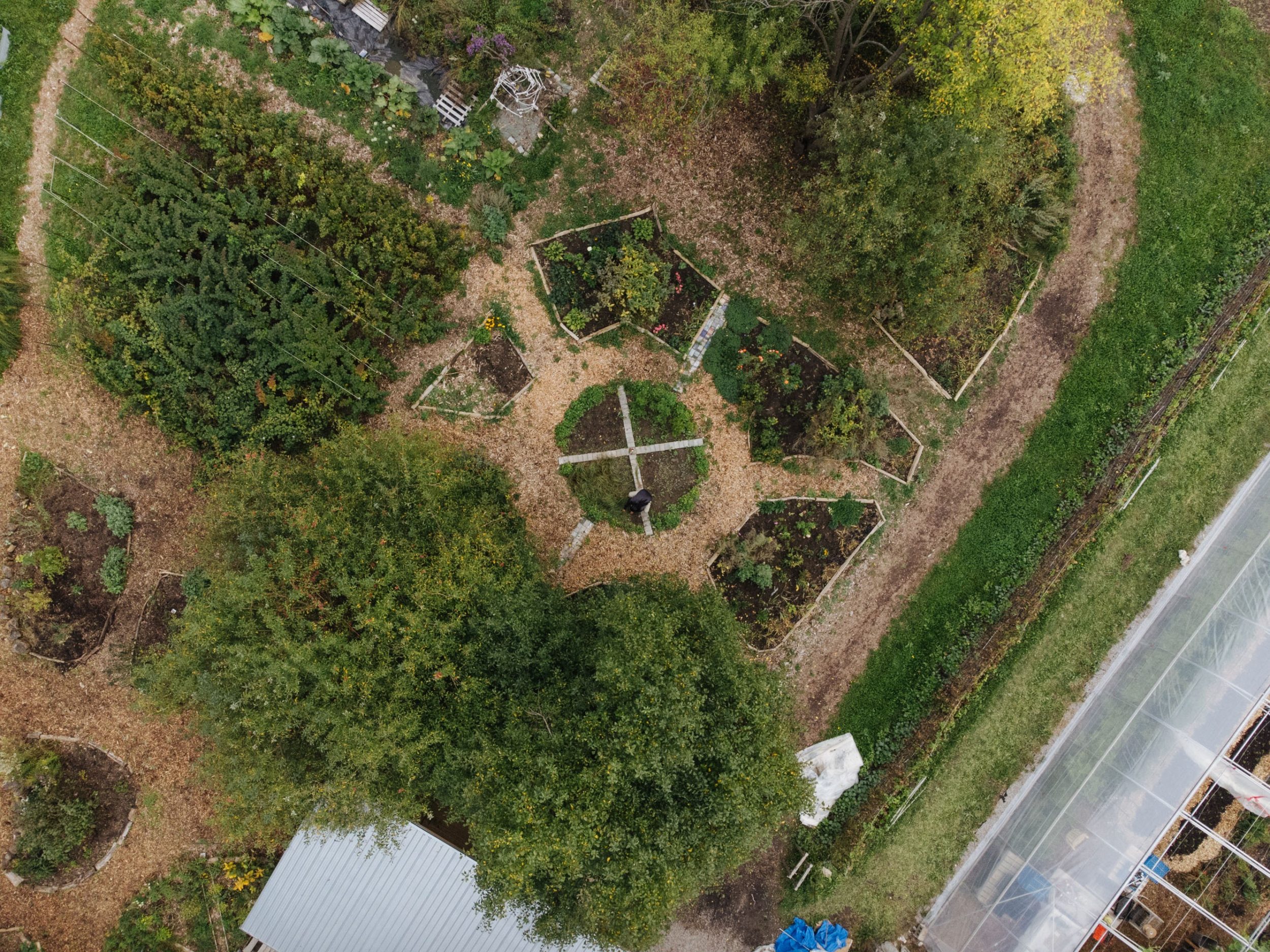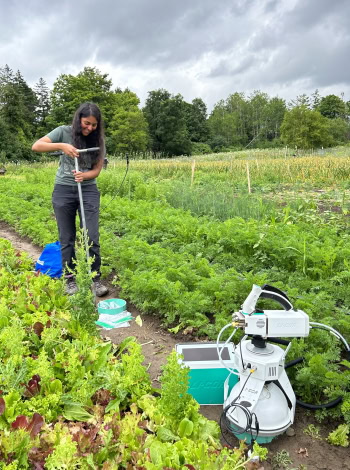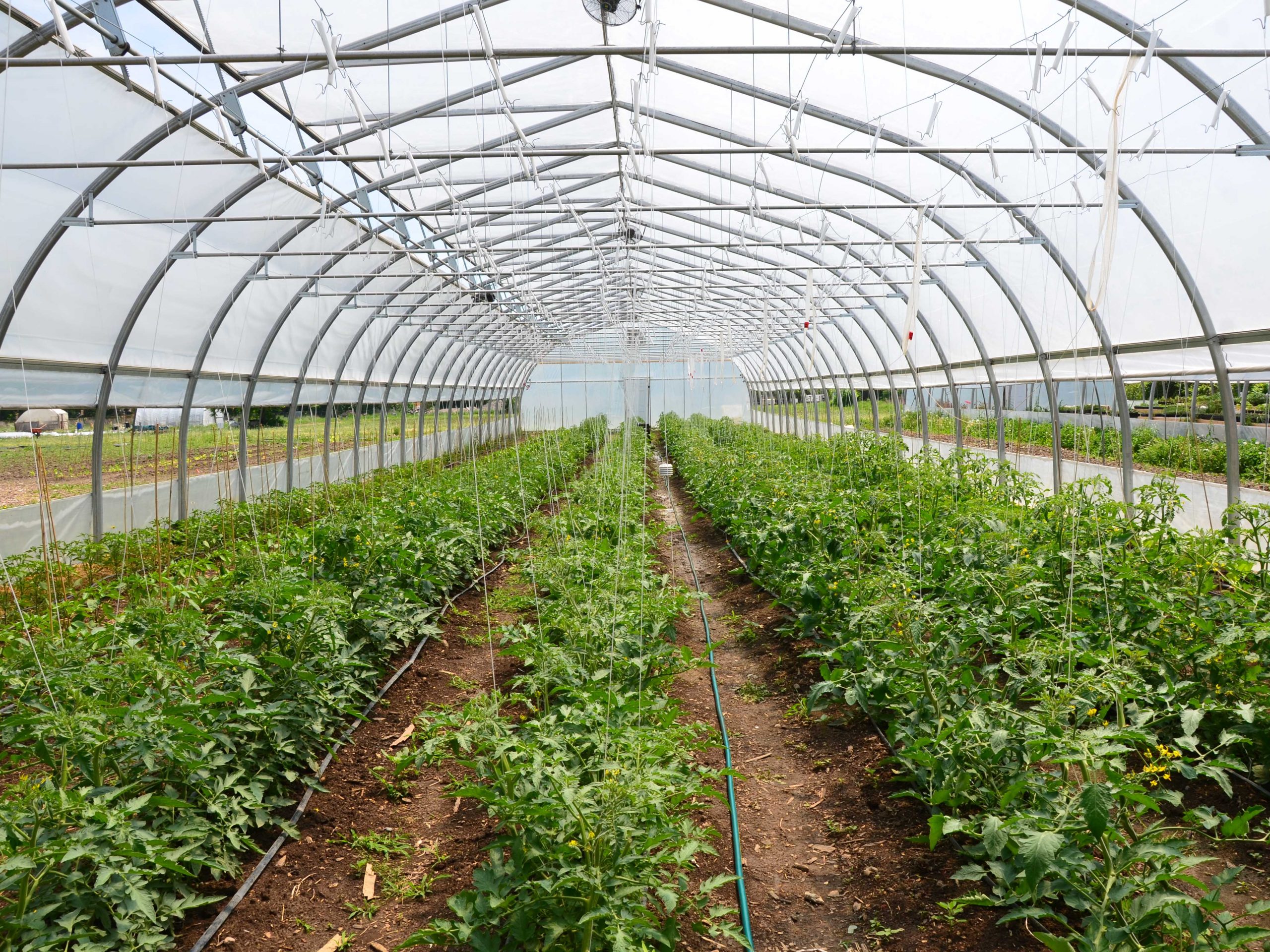
Imagine a city where your favorite fruits and vegetables are grown just steps away—on rooftops, under hydro corridors, or in community gardens. This isn’t a dream; it’s happening now.
At Black Creek Community Farm (BCCF), we’re proud to be part of TOsustain (Toward Sustainable Urban and Peri-urban Agriculture for Net-zero Food Systems), a $3.9-million research project led by the University of Toronto Scarborough. This initiative explores how urban farming can reduce greenhouse gas emissions, improve food access, and create more resilient cities.
Why Urban Agriculture Matters
Urban agriculture has the potential to address some of the biggest challenges we face today: climate change, food insecurity, and inequities in food access. Through TOsustain, researchers are studying how urban farming can:
- Trap and store carbon dioxide in agricultural soils, reducing greenhouse gas emissions.
- Improve access to nutritious, culturally relevant food in communities like Jane-Finch, which face systemic barriers to food security.
- Reduce reliance on imported food, cutting emissions from transportation and boosting local food resilience.
Cooling Jane-Finch: Combating the Urban Heat Island Effect
[Map by Jeff Allen and Irene Chang]
The Jane-Finch community experiences extreme heat during the summer months, exacerbated by the urban heat island effect—a phenomenon where urban areas retain heat due to large amounts of concrete, asphalt, and limited vegetation.
This heat vulnerability index shows that heat exposure, sensitivity, and adaptive capacity are not uniformly distributed across the city. The vulnerability varies based on demographic and socio-economic factors, as well as differences in land use and green space. This means some communities, like Jane-Finch, face heightened risks during extreme heat events.
BCCF is making a tangible difference by transforming underutilized green spaces into vibrant agricultural hubs. Our farm’s vegetation not only provides shade but also reduces surface temperatures, improves air quality, and creates a more comfortable environment for residents.
Urban farms like BCCF offer a solution to urban heat challenges while providing fresh, locally grown produce and fostering stronger community connections.
BCCF: A Hub for Innovation and Action
As a vital partner in TOsustain, BCCF is a living laboratory for sustainable agriculture. Our farm is contributing to groundbreaking research, such as measuring soil carbon levels to understand how farming practices can enhance carbon storage and mitigate climate change.

[Postdoc Lutchmee Sujeeun soil testing at Black Creek Community Farm in North York]
We’re also showcasing how small-scale urban farms can make a significant difference. At BCCF, we grow fresh produce that feeds families, supports local food banks, and addresses the challenges of food deserts. By localizing food production, we’re reducing our carbon footprint while fostering stronger community connections.
How You Can Help
The future of urban agriculture depends on partnerships and community support. Here’s how you can join us:
- Donate: Your contributions directly fund programs that empower local communities and advance sustainable farming. Click here to become a monthly supporter: blackcreekfarm.ca/donate
- Volunteer: Get involved at the farm and experience the impact of urban agriculture firsthand, check out blackcreekfarm.ca/volunteer
- Advocate: Share our mission and the importance of sustainable urban farming with your networks.
Urban agriculture is more than growing food—it’s about cultivating resilience, equity, and sustainability. At Black Creek Community Farm, we’re honored to collaborate with U of T and other partners to demonstrate the transformative potential of urban farming.
Let’s grow a greener, healthier future together. To learn more about our work or get involved:


